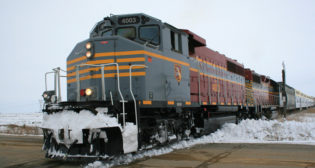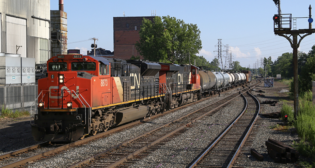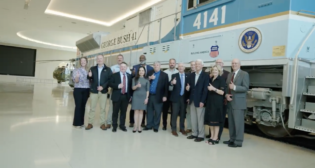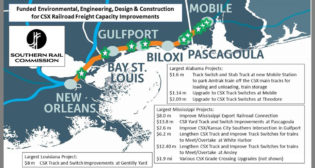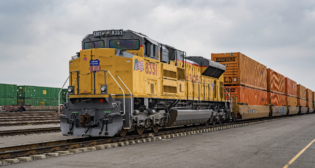
Eagle Pass, El Paso Border Crossings Reopened (Updated)
Written by William C. Vantuono, Editor-in-Chief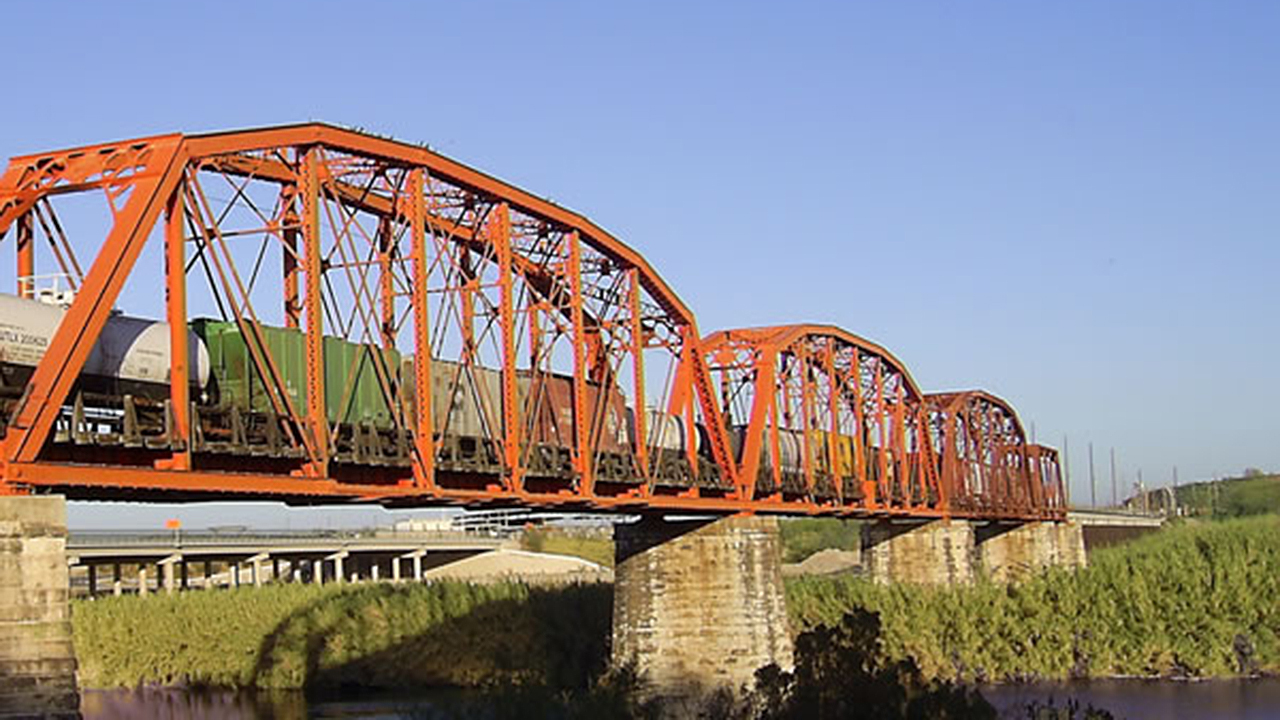
Union Pacific International Railroad Bridge view from Piedras Negras, Mexico. Wikimedia Commons/Manuel Velez
Union Pacific and BNSF were notified by U.S. Customs and Border Protection on Sept. 22 that rail traffic at the Piedras Negras, Mexico/Eagle Pass, Tex., border crossing on UP’s Eagle Pass Subdivision and Ciudad Juarez/El Paso crossing on BNSF’s El Paso Subdivision could resume its normal flow on Saturday, Sept. 23, at 12:00 AM CDT. Service had been suspended since Sept. 19, when Mexican railway operator Ferromex (FXE) temporarily suspended 60 trains on its south-north routes because of an increasing number of migrants climbing aboard railcars, and suffering injuries and fatalities. UP and BNSF had issued embargoes at both locations.
BNSF reported on Sept. 25 that it cancelled the embargo impacting all transborder traffic destined for interchange with FXE at Eagle Pass and El Paso. The embargo was issued on Sept. 20 following the Department of Homeland Security’s border closure. “All railcars that were in holding due to the embargo will be released for movement, and transborder shipping will resume normal operations,” BNSF said.
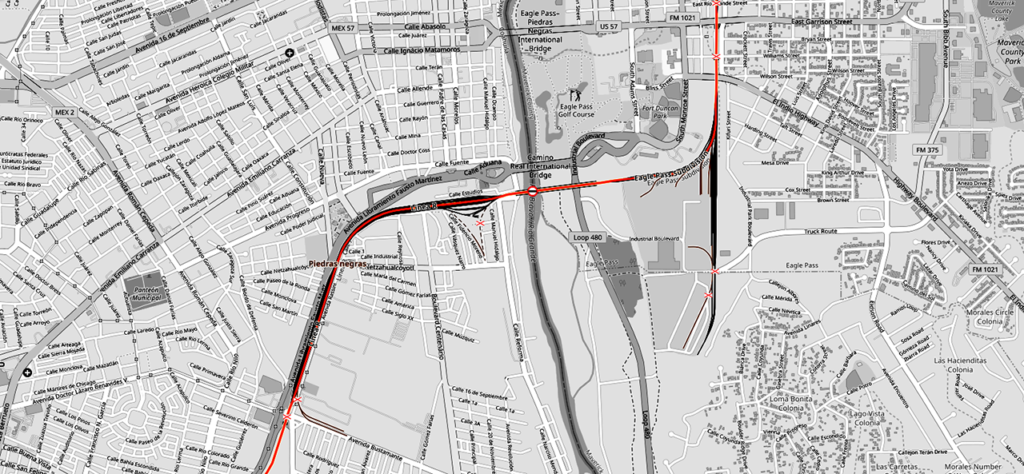
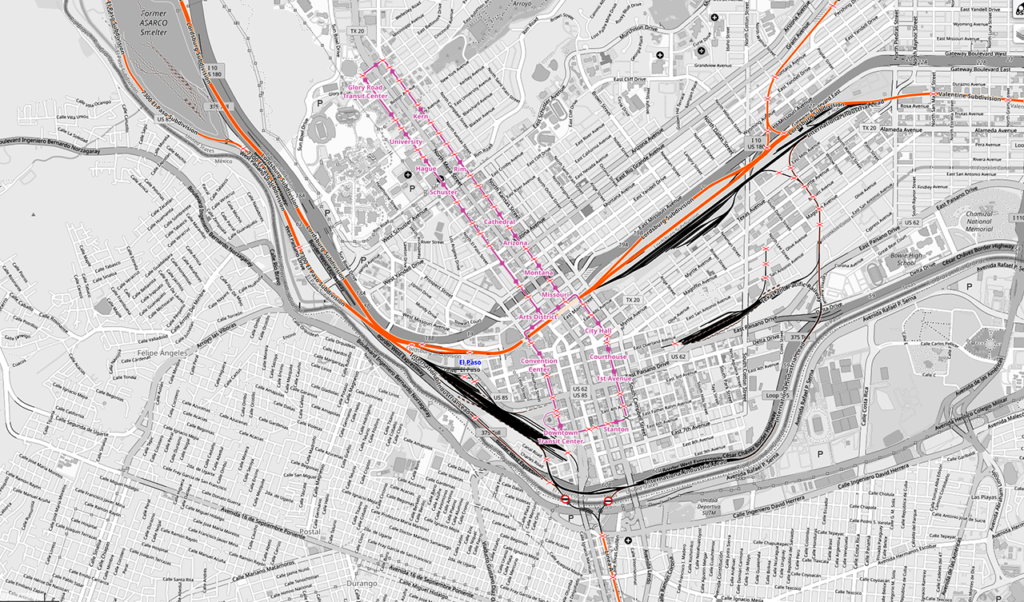
“Twenty-four trains spanning 168,700 feet (31.9 miles), including about 2,400 cars weighing a total of 240,000 trailing tons, are being held on the north and southbound sides of the [Eagle Pass] border,” UP reported late Sept. 22 “The business mix at the interchange includes agricultural, food and beverage products, automotive vehicles, consumer goods, and other industrial commodities. Given the closure, the company issued an embargo earlier this week and notified customers.”
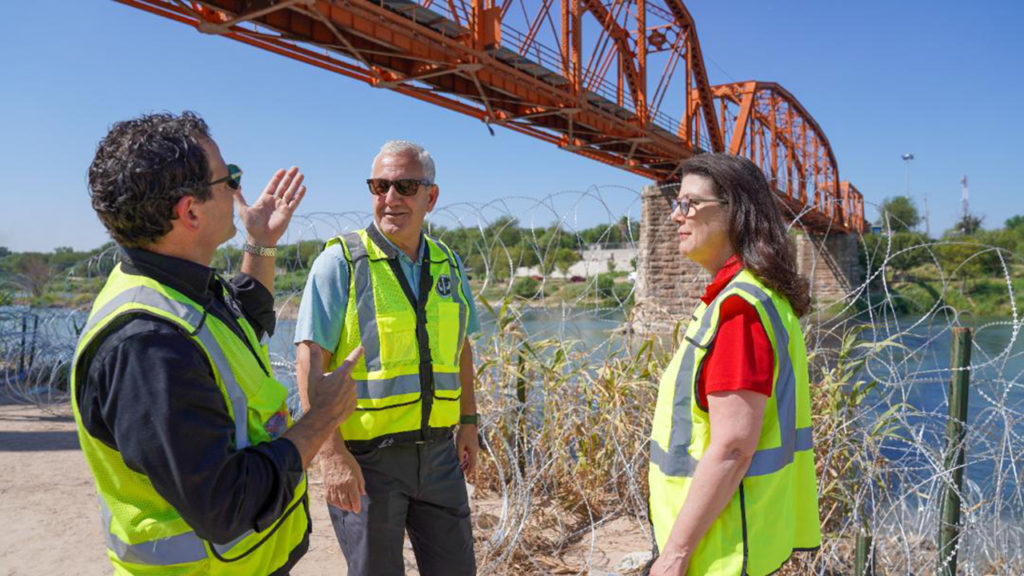
Union Pacific CEO Jim Vena, accompanied by President Beth Whited, Executive Vice President and CFO Jennifer Hamann, and leaders from Corporate Relations, Marketing and Sales, and Operating visited the Eagle Pass International Railroad Bridge on Sept. 22 “to see the migrant crisis firsthand, understand its impact and identify ways to get trains and customers’ freight moving as soon as possible, given the urgency of the humanitarian crisis at the Southern border, and the impact the closed border is having on its operations.” UP said. “Seeing and hearing the depth of this humanitarian crisis firsthand, vs. watching from thousands of miles away [at UP’s Omaha headquarters], was sobering. When they arrived at the border crossing rail bridge, the team witnessed a family of three attempting to cross. The mother had a small baby in her arms and fell into the razor wire, and a man was swimming across the river with a child on his back. The scene was heartbreaking to witness.”

After leaving the bridge, the UP delegation met with more than 20 stakeholders and first responders, including Eagle Pass Mayor Rolando Salinas, Maverick County (Tex.) Judge Ramsey English Cantu, U.S. CBP (Customs and Border Protection) Interim Port Director Pete Beattie, the assistant fire chief, police chief, Homeland Security border patrol and several members of their teams. The delegation “listened to the challenges the police force, customs officers and emergency response teams have been managing on a daily basis,” UP noted. “Hearing from the first responders made it clear the gravity of this humanitarian crisis is beyond any one community or company. This complex crisis requires significant intervention and support from policymakers in Washington, D.C.”
As the crisis continues to impact Union Pacific operations, the company said it took the following actions:
- Donated $100,000 “on the spot“ to Mayor Salinas “to use as he sees fit to address the complex and significant issues the town is facing.”
- Staged trains that were already en route to alleviate any additional congestion once the gateway reopens.
- Identified alternative routes for some customers where feasible.
- Reached out to congressional, state, and local elected officials, business allies and industry associations, “sharing the urgency of this situation and the impact on the U.S. economy.”
- Encouraged customers to reach out to their trade organizations and elected leaders for additional intervention.
UP added it “is working with FXE to identify solutions, and with impacted customers to problem-solve. Some agriculture customers have already reached out to their trade organizations to emphasize the severity of this issue.” The railroad is also “conducting significant outreach to Congressional allies for support and to identify avenues to others in the [Biden] Administration who may be able to help.” Vena is making personal phone calls throughout the weekend “to do everything possible to shine a light on these challenges.”
